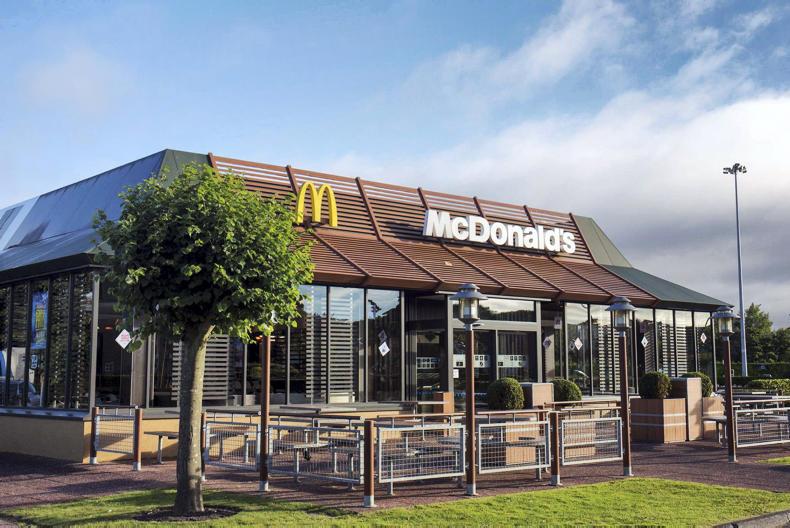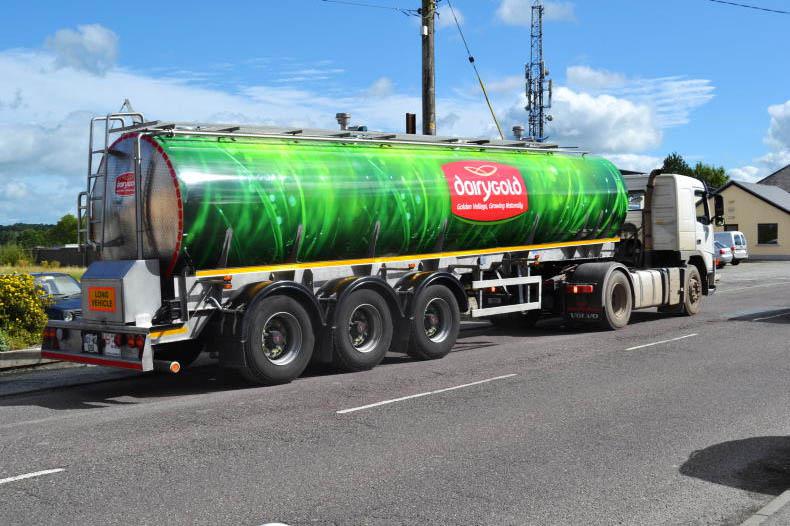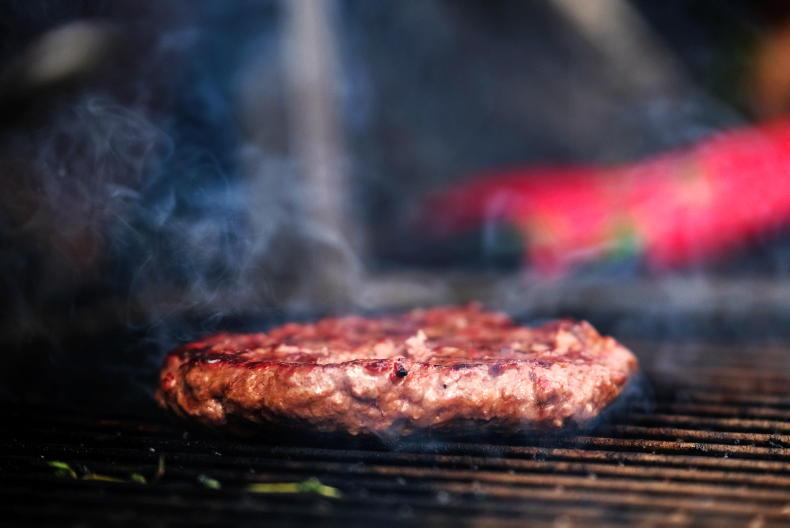Ireland’s farmers and food industry were dealt a major blow this week, as a raft of the sector’s blue chip customers announced they would shut their doors in a bid to contain the spread of the coronavirus and protect their employees.
McDonald’s, the world’s largest fast food chain, was the first to make this move after it announced on Sunday night it would close its 95 restaurants in Ireland and its 1,270 restaurants in the UK. It was only a matter of time before others followed suit.
By Monday afternoon, Supermac’s, Subway, KFC and Starbuck’s had all announced similar measures, while it's likely that Burger King will make a similar announcement very soon.

In reality, the announcement by McDonald’s and other chains to close their restaurants marked the complete shutdown of Europe’s food service market, which is valued at an enormous €600bn.
From a public health perspective, this is absolutely the right call by these restaurant chains and they should be commended for protecting their staff and the public from the coronavirus.
Impact
Nevertheless, the closure of all these chains will come as a major short-term blow to Ireland’s food industry.
McDonald’s alone sources over €200m worth of food from Irish producers every year. It buys bacon from Dew Valley in Tipperary, eggs from Greenfields farm in Monaghan and chicken from Moy Park in Northern Ireland.
However, Ireland’s beef industry is particularly impacted, given the sheer volume of beef that burger chains such as McDonald’s, Burger King and Supermac’s would sell on a weekly basis.
McDonald’s is the single largest buyer of Irish beef, sourcing 40,000t for its burgers
These chains may use lower-quality cuts of beef, but the volume of manufacturing beef they buy from Ireland is very significant. McDonald’s is the single largest buyer of Irish beef, sourcing 40,000t for its burgers.
The closure of McDonald’s chain of restaurants will have the biggest effect on Dawn Meats, which has produced over one billion beef burgers for the fast food chain since a €300m deal was signed between the two companies in 2012.
Dawn Meat's production site at Carroll’s Cross in Waterford now produces more than 400m beef burgers a year for McDonald's outlets in Ireland, the UK and continental Europe.
When Burger King decides to close its chain of restaurants ,it will directly impact Kepak. Its burger plant in Ballybay supplies an estimated 10,000t of Irish beef to Burger King’s chain of 500 restaurants in the UK every year. Likewise, the closure of Supermac’s chain of 110 restaurants will also impact Ireland’s beef trade.
Dairy
However, it’s not just the beef industry that will be negatively impacted by the closure of these restaurant chains. The reach of these companies stretches right across the food sector and they account for significant volumes of Irish cheese, ice cream, pork, chicken, eggs and bread.
For instance, Kerry Group has a major contract supplying sliced cheese to McDonald’s UK and Ireland restaurants for use on its range of burgers. Kerry Group also produces the soft ice cream used to make McFlurry deserts.
McDonald’s has also grown into a major player in the coffee market over the last decade. Anyone who’s ever bought a coffee in McDonald’s will know the restaurant chain offers customers a UHT ‘milk stick’ made by Lakeland Dairies if you want milk in your coffee.
Starbuck’s has grown to such a scale that it now uses more than 1bn litres of fresh milk every year
Of course, the biggest player of all in the coffee market is Starbuck’s. It may not be obvious to farmers, but Starbuck’s has grown to such a scale that it now uses more than 1bn litres of fresh milk every year in its coffee drinks. As with beef markets, the closure of Starbuck’s will impact supply and demand factors in the dairy sector.
Meanwhile, sandwich chain Subway buys around €120m worth of Irish cooked meat every year. In 2017, the company signed a seven-year deal valued at €850m, with Kildare-based Dawn Farm Foods, which manufactures cooked meats such as pepperoni, salami and ham to be used in over 4,000 Subway outlets across Europe.
Perhaps the company most impacted by the closure of these chains is Aryzta, the bakery giant best known for its famous Cuisine de France brand.
However, Aryzta also has a huge business making burger buns for the likes of McDonald’s, sandwich breads for Subway and cookies for Starbuck’s.
The closure of these chains will undoubtedly hurt Aryzta, a business which has its own challenges before any coronavirus ever came along.
Collapse
The closure of branded restaurant chains such as McDonald’s and Subway is perhaps the most visible sign of the broader collapse in the food service market in Europe over the last two weeks.
As the coronavirus has spread into Europe, governments across the continent have introduced social distancing guidelines and even restrictions on the movement of people across borders.
Understandably, this has led to the mass shutdown of restaurants, pubs and other public food outlets. This shutdown has, almost overnight, resulted in the collapse of the high-value food service sector, which is valued at €8.5bn in Ireland, €100bn in the UK and more than €500bn in the rest of Europe.
While orders from supermarkets have soared in recent weeks due to the closure of restaurants, the shift in demand will not be enough to fill the void for most food companies left by the shuttering of restaurants.
Big question
The big question now facing Ireland’s food industry is how long the food service industry will be out of action for, not only in Ireland but across Europe.
A sustained period of closure for this enormous route to market for meat and dairy ingredients could be catastrophic for farmgate prices.
As each day goes by, market intervention or support in some shape or form by the European Commission looks increasingly essential if Europe’s food industry is to continue operating.










SHARING OPTIONS